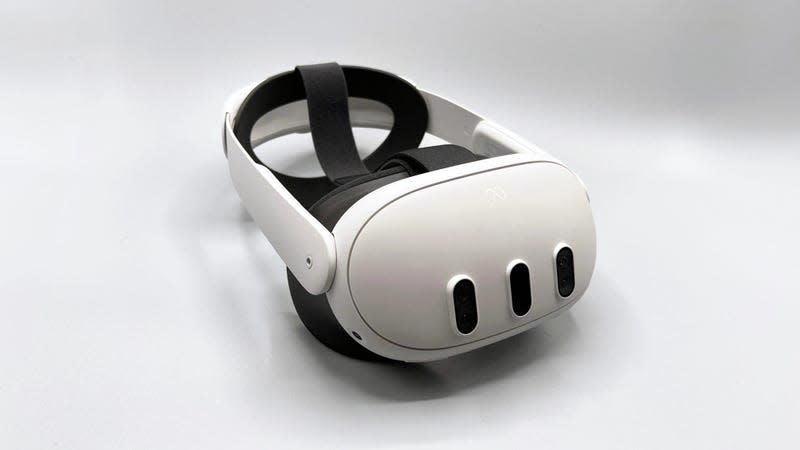Meta Quest Horizon OS Will Finally Make 3rd Party VR Headsets Worth Buying

- Oops!Something went wrong.Please try again later.
Meta’s metaverse dreams might actually blossom a bit this spring as it’s finally done trying to hole itself in its own walled garden filled with its Meta Quest 3 headsets. Starting today, the Zuckerberg-led company has its own OS ecosystem, called Horizon OS, and with new headsets coming from some of the biggest PC makers out there, we can finally see VR being far more useful. To top it off, Xbox and Meta now have their own Quest coming down the pike.
Horizon OS is a new VR ecosystem akin to Android, enabling other headset makers to stick Meta’s framework on their devices. Funnily enough, the existing OS on Quest headsets is based on Android, though it has its own app marketplace called the Meta Quest Store. However, now, far more hardware developers are able to build their own Quest-like devices. The store is also getting renamed to the Horizon Store to fit the new OS name scheme.
So far, Meta confirmed that Asus’ gaming brand, ROG, and Lenovo (which helped co-design the Oculus Rift S) are making their own new VR headsets incorporating Horizon OS. According to Meta, both will be built using Qualcomm’s Snapdragon XR2 Gen 2 processors.

If you’re wondering why there’s a Horizon Worlds-looking dude sporting a black and green Meta Quest 3 in the main pic, that’s because Meta’s also trying to hint at a limited Xbox-themed Quest coming down the pike. There’s no word whether this version will be any different than a regular Quest with a different color scheme, though it does fit in with Xbox and Meta’s plans since Game Pass became fully interoperable with Quest’s OS late last year. Similarly, Valve’s Steam VR has its own dedicated app on Quest that makes it easy to stream Steam games on Quest headsets, so long as you have a computer capable of playing those titles.
In a video, Meta CEO, BJJ aficionado, and perpetual idea swiper Mark Zuckerberg compared the new open Horizon OS to Apple’s iOS. At the same time, the iPhone is effectively a closed system that limits what users can access; his company’s new OS is much more akin to the “PC model.” The Quest’s “spatial computing OS,” as Zuckerberg is now trying to call it (a term that’s only grown popular because Apple uses it), is indeed one of the most-used devices in the VR space.
Big news! Meta has just announced that they're opening up Meta Horizon OS, the operating system powering Quest, to allow others to design more headsets using their ecosystem. Lenovo, Microsoft, and ASUS are among Meta's initial partners. This move could spark a new wave of… pic.twitter.com/xu6A0LfcZX
— Nathie (@NathieVR) April 22, 2024
Why Meta’s head is taking swipes at Apple is pretty obvious. There’s the $3,500 Vision Pro, released just two months ago, and while it had some excellent passthrough capabilities, it also proved an ultra-premium device that few could get their hands on. Zuckerberg even went so far as to call out Apple and claim his company’s Quest 3 is a better VR/AR device than the Cupertino company’s big new toy.
The VR headset market hasn’t exactly been topping the charts for a few years now, but with this announcement, there may be room to grow. We’re still waiting for a Valve Index follow-up, especially since Steam VR 2.0’s user interface is a lot more manageable than it was previously. What’s more interesting is how Horizon OS might change the entire VR landscape. Even when they’re not the biggest releases of the year, there are still companies creating new, high-end headsets that could use a usable UI in the form of Meta’s ecosystem.

